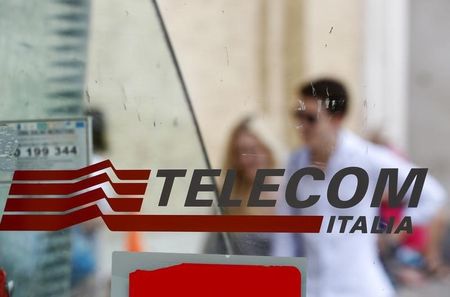By Silvia Aloisi and Danilo Masoni
MILAN/BARCELONA (Reuters) - Telecom Italia will examine a possible tie-up between its Brazilian unit Tim Participacoes and local group Oi, it said as it announced the sale of mobile phone masts for more than 900 million euros ($1.1 billion).
Brazil's telecom market is in the process of consolidating as growth in mobile telephony slows and operators bulk up to fund hefty investment in broadband networks.
Telecom Italia, which owns 66.5 percent of TIM Participacoes, said after a board meeting on Friday it had mandated its management to "examine in-depth the options for a possible integration" of Tim Participacoes and Oi.
"The next steps, if there are to be any, will be submitted to the board for approval," the group said in a statement, without giving any further details.
It said the board of the Brazilian mobile phone operator had approved the sale of its mobile phone towers to American Tower Corp for over 900 million euros, confirming an earlier report by Reuters.
Telecom Italia Chief Executive Marco Patuano had put those masts up for sale a year ago when he unveiled a 4 billion euro business plan to cut debt and help fund much-needed investments.
After failing to complete a sale of its Telecom Argentina unit and delaying the disposal of its mobile towers in Italy, the Brazilian deal will be regarded as a step forward.
Sources had said before the start of the board meeting Patuano would tell directors the best option for the company's Brazilian mobile business would be to pursue an acquisition of rival Oi.
Any tie-up with Oi would not involve a capital increase at Telecom Italia but TIM could raise as much as 2 billion euros to fund the deal, one of the sources said.
The Italian company also confirmed in its statement reports that it had sent a proposal to Italian infrastructure fund F2i, asking to start discussions about the acquisition of a controlling stake in fibre optic provider Metroweb "as soon as possible".
It said it saw Metroweb as the partner with which it could quickly come up with a plan to boost investment in faster networks.

(Writing by Stephen Jewkes and Silvia Aloisi; Editing by Pravin Char and Gunna Dickson)